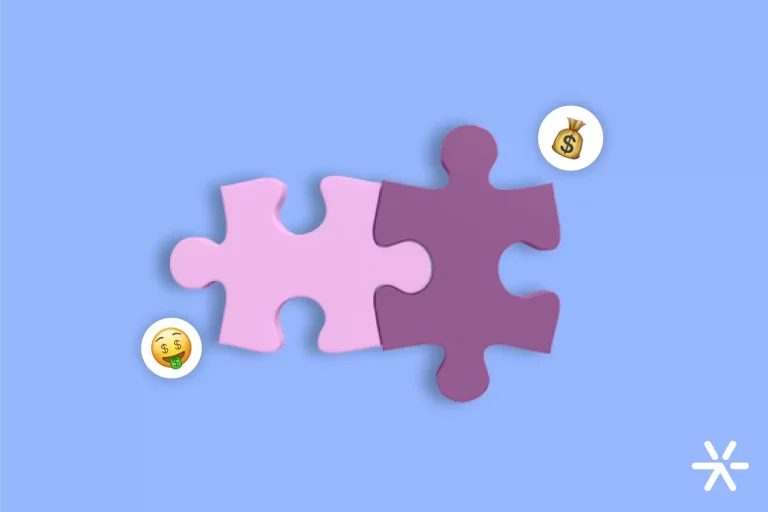How to Use Emotional Intelligence to Sell More
Emotional Intelligence is one of the most valued soft skills in the market—and also one of the hardest to develop.
That’s because it combines experience, adaptability, self-control, empathy…
In addition, it requires transforming all these skills into actions to overcome daily challenges.
Since it’s a skill directly tied to interpersonal relationships, emotional intelligence is widely explored by great salespeople and professionals in management and leadership positions.
Want to understand the benefits of this emotional skill and how to develop and apply emotional intelligence in practice?
Then keep reading this complete article on the topic!
What Is Emotional Intelligence?

Emotional intelligence is the ability to recognize, understand, and manage your own emotions and impulses—along with doing the same for others’ feelings.
The term “emotional intelligence” became popular thanks to the work of writer, psychologist, and Harvard PhD Daniel Goleman.
In 1995, Goleman released a book bearing the term as its title, addressing how we have two sides: emotional and rational.
He also argued that awareness of our emotions gives us greater control and enhances our overall intelligence.
What Is Emotional Intelligence in Sales?
As mentioned, emotional intelligence can be applied by sales professionals because it is a skill associated with building and maintaining human relationships.
But it’s not only for that reason—it’s also relevant to handling situations, overcoming objections, and closing deals.
What Are the Benefits of Developing Emotional Intelligence in Sales?
Drawing from Goleman’s research, emotional intelligence is built upon five key pillars:
Emotional Self-Awareness
The first step is being aware of your emotions.
That means recognizing your strengths, frustrations, triggers, reactions, and weaknesses.
Only with self-awareness can you move on to the next pillars.
Emotional Control
Once you identify your feelings, you must learn to manage them.
Emotional control doesn’t mean repressing feelings but rather anticipating reactions and adapting them to the needs of the moment.
Self-Motivation
Emotional intelligence helps you understand and harness positive emotions.
You learn what motivates and satisfies you, which is key for achieving both professional and personal goals.
Recognizing Emotions in Others
After mastering your own emotions, emotional intelligence teaches you to do the same with others.
Empathy, connection, and respect for others’ limits and reactions come into play.
In sales, this means understanding a client’s needs, doubts, and perspective.
Interpersonal Relationships
All of the above impacts this final pillar—interpersonal relationships.
In sales, this pillar directly influences your ability to build healthy interactions with clients and teammates.

How to Develop Emotional Intelligence in Sales Teams
There’s no single formula for improving emotional intelligence.
One valuable resource—especially for those in sales—is the book Sales EQ by Jeb Blount.
In it, Blount outlines four types of intelligence that influence business performance:
Innate Intelligence (IQ)
This is your natural intelligence—your IQ—which you’re born with and cannot develop over time.
Blount notes that people with higher IQs often show less empathy, which makes it essential to cultivate other types of intelligence.
Acquired Intelligence (AQ)
This is the intelligence you gain through experiences, learning, and personal growth.
You can boost it with courses, mentoring, reading, and feedback.
Technological Intelligence (TQ)
This relates to your familiarity with technology and tools.
In sales, this includes mastering CRM platforms, automation tools, and digital processes.
Emotional Intelligence (EQ)
And finally, the focus of this article—EQ. It boosts sales performance and is a must for sales professionals.
6 Emotional Intelligence Tips to Boost Sales Performance

Ready to start developing this essential interpersonal skill?
Here are some practical tips:
Know Yourself
Self-awareness is the foundation.
Understand your strengths to enhance them and your weaknesses to manage them.
Identify your stress triggers and learn how to stay balanced.
Learn to Handle Your Emotions
Self-awareness helps you process emotions more effectively.
If you react poorly to a situation, reflect on it and consider what you could have done differently.
This kind of learning only you can provide yourself.
Know Your Clients
Truly listen to your clients—both their words and body language.
Learn to identify different customer profiles and adjust your approach accordingly.
This helps you offer the right solution to each person.
Always Be Empathetic
Put yourself in others’ shoes—whether a client or a colleague.
It will help you understand different viewpoints, resolve conflicts, and build strong relationships.
Also, focus on communication: listen patiently, speak clearly, and be open to dialogue.
Stay Motivated
Know what drives you and hold onto it.
Your personal motivations are what keep you moving and focused.
Always Keep Learning
Developing emotional intelligence is an ongoing process.
Keep learning about yourself, and also be open to feedback and constructive criticism.
Others may point out what you don’t see yourself.
Conclusion
Start observing and thinking critically about your behavior and how you respond to setbacks and negative emotions.
Express yourself clearly and always consider others’ perspectives to strengthen your emotional intelligence.
Did you enjoy this article? Check out our other article: Marketing and Sales: How to Align Strategies and Hit Your Targets.








